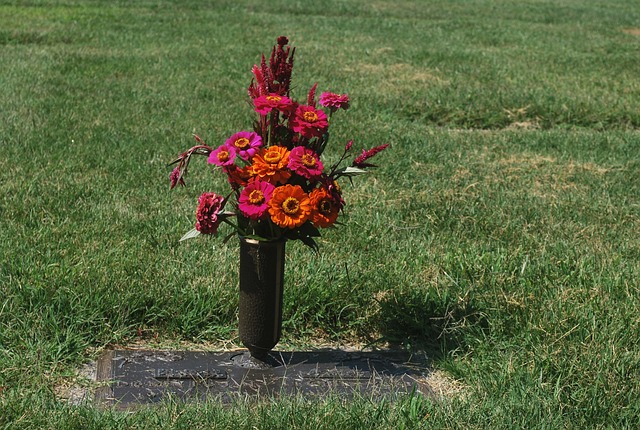Wise shoppers clip coupons.
My wife, Dolly, is a persistent coupon clipper. She saves us hundreds of dollars a year with this discipline. She only uses the coupons for what she plans to purchase, anyway. She knows what day specific supermarket flyers come with the daily newspaper, and times her shopping trips accordingly.
The longer I study God’s Word, the more I’m convinced of yet another maxim.
Wise Christians clip obituaries! Or at least they skim these death notices and ponder the implications of death for their earthly lives.
Here are a few more reflections on this theme.
A Grave Concern
As I read Genesis 5 a few years ago, I mined a valuable gold nugget of truth from what appeared to be a sterile list of names and the number of years each person lived. The author traces the “generations of Adam” and the “descendants of Seth,” his son. God gave the persons listed exceptional longevity. But with the exception of Enoch, who God miraculously took up to heaven without experiencing physical death, all the persons cited faced a common fate: death.
“So all the days of Adam were 930 years, and he died” (5).
Seth lived 912 years, “and he died” (8).
Enosh lived a whopping 905 years, but “he died” (11).
Kenan lived 910 years, “and he died” (14).
Don’t forget Mahalalel, who made it to 895 years, then “he died” (17).
Jared reached 962 years, but he also died (20).
Lamech died young, living just 777 years (31).
The granddaddy of them all was Methuselah, who lived 969 years…then he died (27).
I was hurrying through this biographical information, eager to get to more meaty, applicable content in my devotional time, when the Holy Spirit said, “Slow down, Terry. Take note of their common destiny!” So I paused and wrote the following journal entry.
A Grave Concern January 14, 1995
Whether you are a vegetarian or a meat-eater; whether you jog five miles a day or you’re a couch potato; whether your cholesterol is 150 or 350; whether your dad died of a skydiving accident when he was 85, or of a heart attack at 40; whether you weigh a tight 170 pounds, or you break the scales at 325; whether you partake of nonfat frozen yogurt or Breyer’s deluxe chocolate chip ice cream….
Your heart will one day stop beating. Your body will die. Your skin will grow cool to the touch. To honor you, they’ll host a funeral or memorial service. It is inescapable. “It is appointed for man to die once, and after that comes judgment” (Hebrews 9:27).
I ask myself, “What difference should knowing this make now?”
“Father, thank You for the truth tucked into the seams of Genesis 5, for reminding me of my ultimate destiny on earth. Perhaps the key to living well for You is remembering that I am going to die. In the name of Jesus, who proved once and for all that a cemetery plot or tomb is not a permanent residence, and who never had to choose between whole milk and skim, amen.”
A Key to Living Well for Christ
Thinking about the inevitability of my death isn’t a morbid preoccupation with the macabre. Quite the contrary. Many saints from the past believed that living with the realization of death is a prerequisite for living well as a Christian. Ponder these snippets.
- Thomas a Kempis (1380-1471) “You ought so to order thyself in all thy thoughts and actions, as if today you were about to die. So lead your life that death may never take you unprepared.”
- William Law (1686-1761) “The best way for anyone to know how much to aspire after holiness is to consider not how much easier it will make his present life, but to ask himself how much he thinks it will make him easy at the hour of death. What message from heaven speaks louder to us than the daily dying and departure of our fellow creatures?”
- John Climacus (579-649) “You cannot pass a day devoutly unless you think of it as your last. The thought of death is the most essential of all works, and a gift from God.”
- Richard Baxter (1615-1691) “Spend your time in nothing which you know must be repented of; in nothing on which you might not pray for the blessing of God; in nothing which you could not review with a quiet conscience on your dying bed; in nothing which you might not safely and properly be found doing if death should surprise you in the act.”
- Charles Spurgeon (1834-1892) “A good character is the best tombstone. Those who loved you and were helped by you will remember you when forget-me-nots have withered. Carve your name on hearts, not on marble.”
Gary Thomas, a contemporary Christian writer, adds the following remarks on the benefit of thinking about death.
Remembrance of death acts like a filter, helping us to hold on to the essential, and to let go of the trivial. What men or women in their right mind would continue an affair if they really believed they might not wake up in the morning? What person would risk entering eternity in a drunken stupor? What fool would ignore his loved ones and God for one last night so that he could make another ten thousand bucks just before he died? When we schedule our priorities and our passions without regard to eternity, we are essentially looking into the wrong end of a scope.
It is only the denial of death that allows us to continue rebelling against God. It is only because we are presuming on some future time to set things right that we even consider letting them go wrong. Death becomes our servant, then, when we use it to reorder our priorities and to grow in grace and holiness.*
Devotional Plan for Your Visit to a Cemetery
Drive to a nearby cemetery. With all the graves and tombstones in view to give you perspective, take 30-40 minutes to examine the following Bible passages and mull over answers to each question.
Ecclesiastes 7:1-4
Why is going to a funeral better than going to a party?
Psalm 39:4-6
What words from these verses reveal the brevity of our earthly life?
Psalm 49:10-12
What words from these verses show the inevitability of death?
Psalm 90:10-12
Based on these verses, write a one-sentence definition of “wisdom.”
James 4:13-15
What attitude or mindset is James criticizing?
_____________________
My Response
How is God’s Spirit speaking a personal word to you?
How should those Bible texts affect or alter your current use of time, money and God-given talents or spiritual gifts?
What effect should the input of these verses have on your personal relationships with God and others?
In light of your earthly transience, what is one thing you’ve intended to do or to change, yet you’ve been putting it off for a more convenient time?
As you ponder the last question, keep in mind “The Procrastinator’s Epitaph.” These words were chiseled along the top of his tombstone: “Here lies a man who was always “going to…..” Then below his name you see these words: “Now he’s gone.”
I’ll leave you with this gem from Jim Elliot’s journal: “When it comes time to die, make sure that all you have left to do is die.”
____________________
Please…if you follow my suggestion and use the devotional at a cemetery, let me know how the time affected you. terry.powell@ciu.edu
*The title I chose for this post is the same as the title of a magazine article in Christianity Today, written by Gary Thomas in1994. His article served as a catalyst for my own thinking and study of this topic, and I gleaned his quote from the article.





0 Comments